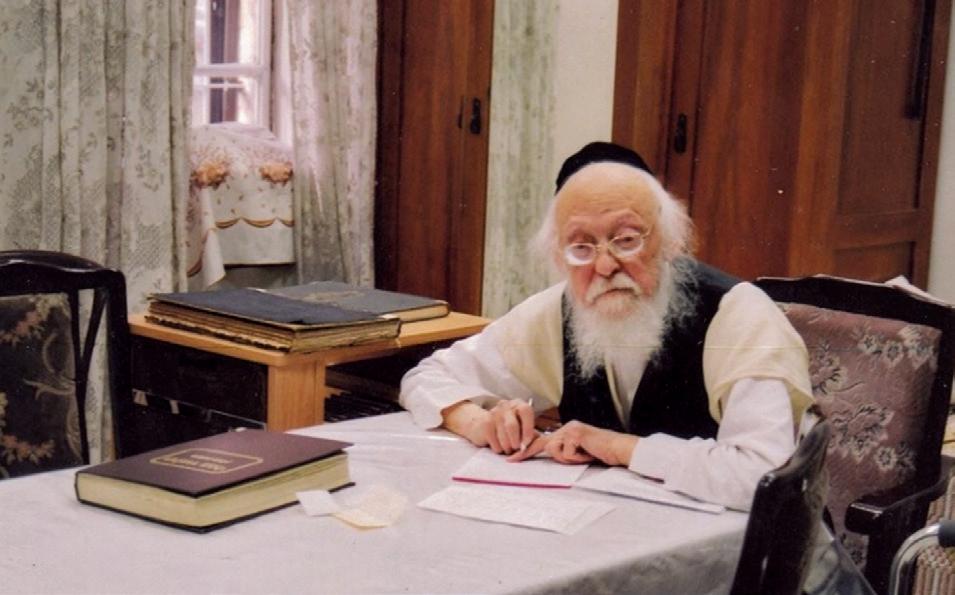
1 minute read
Stories to Inspire The Power of Personal Thanks
Based on a story told over by Rabbi Fischel Schachter
Prepared for print by Daniel
Advertisement
Agalar
Heart surgery is an extremely risky procedure for anyone. When Rav Yosef Shalom Elyashiv, zt”l, at the age of 102, required a heart procedure, no doctor in Eretz Yisrael was willing to take on the risk of performing it. Instead, a world-renowned heart surgeon from America, along with his team of doctors and equipment, was flown in, despite the considerable expense. During their initial conversation, the esteemed doctor was amazed by Rav Elyashiv’s sharpness. Here was a man of 102 years, asking precise questions with a clarity that surpassed even individuals twenty years his junior.
Thankfully, the surgery was successful, and before the doctor and his team returned to the United States, he made a final visit to Rav Elyashiv. Anticipating this visit, Rav Elyashiv turned to someone and asked, “How do you say thank you in English?” He practiced saying the words “thank you” multiple times until he could say them fluently. When the doctor finished his visit, Rav Elyashiv expressed his gratitude in English by saying, “Thank you.” entire congregation bows down and says Modim derabbanan, a prayer of thanks to Hashem. In Modim derabbanan, we personally express gratitude to Hashem, recognizing that our lives are solely in His hands. We can appoint a messenger, the shaliach tzibbur, to beseech Hashem on our behalf for healing or sustenance. The shaliach tzibbur can intercede for us in numerous requests. However, when it comes to thanking Hashem, it must be done personally by each individual. We cannot delegate someone else to say thank you on our behalf because the depth of gratitude varies based on the individual.
People around them were surprised because Rav Elyashiv had been communicating with the doctor through an interpreter throughout their interactions.
They wondered why it was so important for him to personally say “thank you” instead of relying on the interpreter to translate “todah rabba.” When Rav Elyashiv was asked this question, he explained a fundamental concept.
The gadol hador referred to a beautiful explanation from the Abudraham. During the chazaras hashatz, the congregation listens attentively as the shaliach tzibbur recites the Shemoneh Esrei. However, when the shaliach tzibbur reaches the bracha of Modim, the
Daniel Agalar is the founder of Stories to Inspire, an organization dedicated to sharing curated inspirational stories from renowned rabbanim. With a widely popular podcast that has surpassed 4 million downloads, Daniel’s passion for spreading positivity shines through. Join the daily WhatsApp broadcast by messaging 310-210-1205 or explore over 4,300 stories on his website at www.storiestoinspire. org. The stories can also be accessed on the hotline at 718400-7145.










